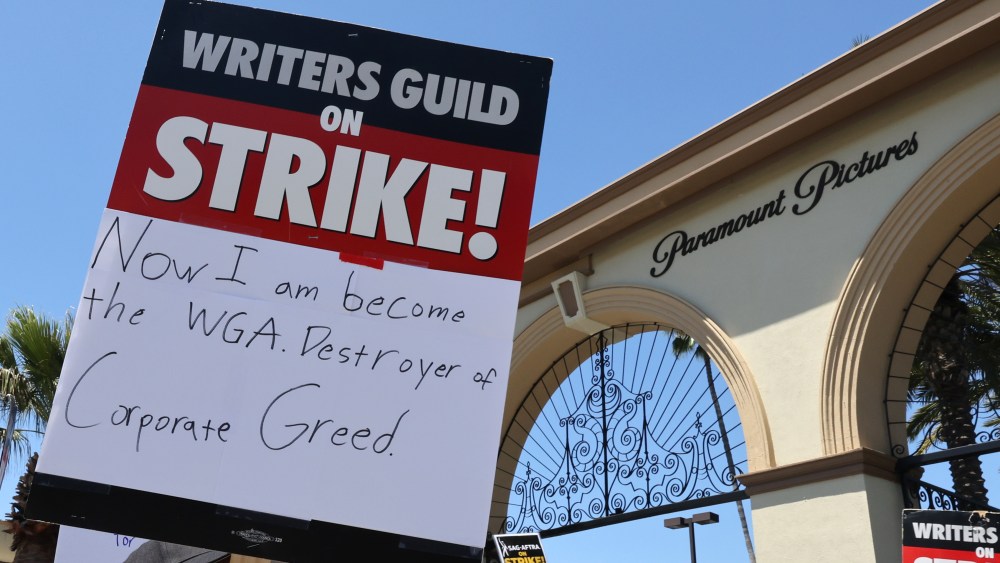UPDATED: The Alliance of Motion Picture and Television Producers and WGA are set to meet again Sunday after four consecutive days of negotiations designed to secure a new three-year contract and bring the nearly five-month writers strike to an end.
Industry sources reported that on Saturday afternoon that a ‘best and final’ offer was sent to WGA negotiators around 5 p.m. PT. Legal representatives for labor and management huddled Saturday in person at AMPTP headquarters. Other key players on both sides monitored events closely but from afar.
Shortly before 8 p.m. PT, the WGA and AMPTP issued a joint statement: “The WGA and AMPTP met for bargaining on Saturday and will meet again on Sunday.”
The AMPTP’s move to make a “last, best and final offer” to the WGA is meant to signal to the guild that the companies will not engage in further negotiation on the terms of the contract in any significant way. It’s a common process in collective bargaining negotiations. The WGA is expected to give the AMPTP a yea or nay on Sunday, which indicates that management may have put a time limit on getting a response. However, the joint statement may also have been an effort to take the temperature down. By multiple accounts, the WGA is poised to achieve significant new compensation and benefits gains. With the pressure brought to bear by the work stoppage, the guild appears to have forced the studios to address each of its major priorities going into what both sides knew would be a tough contract cycle.
Saturday’s focus was finalizing the fine print of language for complicated and cutting-edge contract issues. The stakes in this negotiation have been unusually high, and reflective of the pace of change across the broader media and entertainment industry. Guild negotiators have grappled with how to regulate the use of generative artificial intelligence and other groundbreaking elements for the WGA’s minimum basic agreement, such as a formula for a minimum staff guarantee for episodic TV and a “success-based” residual from subscription platforms that is designed to funnel more money into the WGA’s pension and health funds.
The nitty gritty details of the terms around the AI proposal has been one of the final hurdles to overcome, multiple sources said.
“It’s mainly down to language now,” one industry insider said earlier on Saturday.
The negotiations were jumpstarted this week by the presence of four top executives — Disney’s Bob Iger, Warner Bros. Discovery’s David Zaslav, Netflix’s Ted Sarandos and NBCUniversal’s Donna Langley. Those four took part in three days of marathon negotiations that broke the months-long impasse between the WGA and Alliance of Motion Picture and Television Producers, the bargaining unit for the major studios and streamers.
The senior executives were not in the room Saturday but likely kept close tabs on the progress after investment so much time earlier this week. Insiders familiar with the situation said the approach of the Yom Kippur holiday on Sunday evening became an unofficial deadline target, once it became clear the sides were making real progress earlier this week.
Reps for the AMPTP and WGA did not respond to requests for comment on Saturday. The WGA has been on strike since May 2. Once the WGA deal is wrapped, SAG-AFTRA is waiting in the wings to return to talks and end the first industry-wide strike by the performers guild in more than 40 years. SAG-AFTRA’s work stoppage began July 14.
(Kate Aurthur and Gene Maddaus contributed to this report.)


